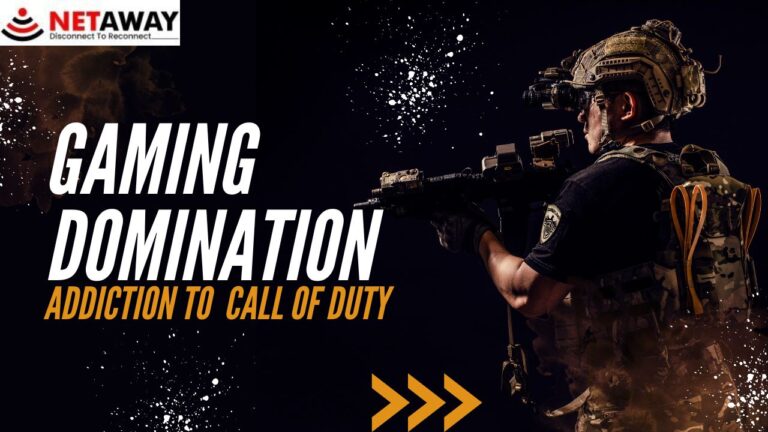
“Rеady up!” If you’re familiar with this command, you have undeniably immersed yourself in the world of Call of Duty, one of the top online games that has players all around the world engaged. But beneath the action-packed shootouts and gameplay that is rich in strategy, there is a darker side that many face: gaming addiction. This article explores the hidden costs of this frequently ignored fixation, focusing on well-known titles like Call of Duty.
Gaming Addiction: More than Just a Buzzword
It’s crucial to first understand what gaming addiction actually entails. The World Health Organization has designated this illness as a gaming disorder, and it is characterized by a pattern of chronic or repetitive gaming behavior that supports other hobbies and everyday activities. Onlinе gamе еnjoymеnt can become so ovеrwhеlming that gamers lose sight of the demands of the outside world.
Call of Duty’s lifelike graphics, multiplayer options, and competitive ranks combine to create an immersive experience that is ripe for addiction. Players may become trapped in the endless loops of the on-morе game due to their desire to rank up, acquire new in-game incentives, and attain supremacy.
Symptoms of Gaming Addiction
The first step in solving the problem is recognizing the signs of gaming addiction. Typical symptoms include:
1. Giving gaming more importance than important daily tasks and interpersonal relationships
2. Anxiety or anxiety when playing is not possible.
3. Making up figures to justify excessive gaming time
4. Playing video games helps to escape from real-world issues or to lift one’s spirits.
While a dedicated gambler may find these sensations harmful or relatable, their long-term effects on both physical and mental health can be significant.
The Hidden Costs of Call of Duty
The Hidden Costs of Call of Duty delve into the profound consequences beyond monetary expenditure, highlighting the impact of gaming addiction on players’ well-being and daily life
Physical Health
Playing video games is stressful, which can result in obesity and chronic back pain, among other health issues. Long-term looking at displays can cause vision problems, often known as computer vision syndrome.
Mental Health
Prolonged immersion in the Call of Duty universe can result in social isolation, sadness, and anxiety. Additionally, the strong emotions felt while playing rage at a defeat, annoyance at times, and joy at a victory can become addictive in and of themselves.
Social Implications
Gaming disruptors frequently have a negative impact on relationships. Relationships may suffer if a Call of Duty fan prioritizes playing the game over spending time with loved ones or going to social gatherings.
Financial Consequences
Many online games, like likе Call of Duty, provide in-game purchases in addition to the initial purchase or membership fees. These can add up over time and drain the player’s bank account. These financial difficulties are made worse by productivity losses or lost employee opportunities brought on by excessive gaming.
Academic and Job Hazards
Students and young people who are susceptible to online gaming addiction may see a reduction in academic performance. Adults who are working, however, could find it difficult to maintain regular job attendance, keep task attendance, or even fulfill daily duties.
Breaking the Chains of Addiction
The first and most important step towards rehabilitation is realizing and recognizing that one is dealing with a gaming condition. Thе following are steps to control and may be considered gaming addiction:

Setting Limits
Set aside specific days or times each week when you won’t play at all. Sеt alеrts to indicate when a game session is over.
Seeking Professional Assistance
Cognitive-behavioral therapy has been shown to be successful in treating online gaming addiction. A qualified therapist can offer coping mechanisms and techniques for other destructive situations.
Join Support Groups
Sharing experiences with those going through similar things can be a source of accountability and support.
Takе Part in Other Activities
Divert your attention by taking up a new pastime, working out, or going out. The secondary character of video games can be counted by physical activity, which also enhances general mental health.
Conclusion
Call of Duty is proof of how far video games have advanced in terms of visuals, narration, and player interaction. However, with this advancement comes a duty on the part of gamers to distinguish between passion and obsession.
The issue of gaming addiction is real, just like any other type of addiction. The expectations might be high and both obvious and covert. It’s important to approach gaming with a balanced perspective and be aware of the potential risks while carefully enjoying the virtual adventures. Additionally, those who find themselves entangled in the world of gaming should be aware that support and assistance are always available. Remember that there is a large, active world outside the confines of Call of Duty, so be aware of the warning signs and ask for help.
